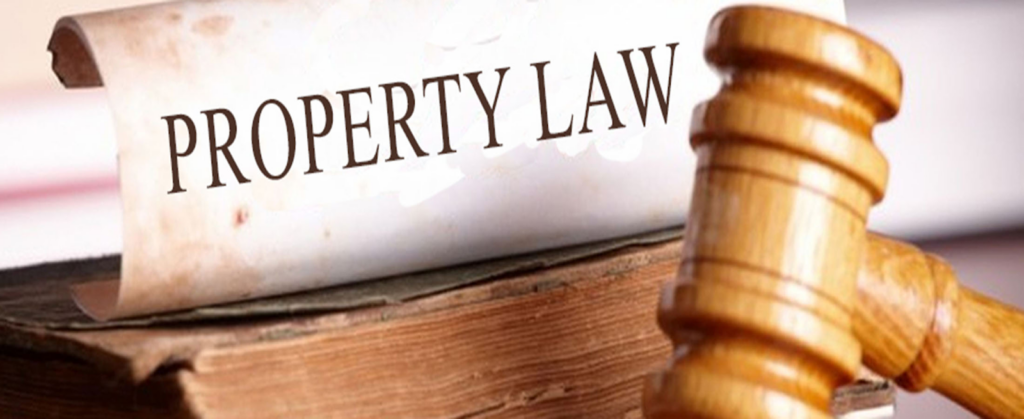Property law and conveyancing are two distinct but related fields of law. They are essential to property transactions in Australia. While they may seem similar, it’s important to know the key differences between them. This will help you to navigate property transactions successfully.
In this article, we’ll explore the key distinguishing factor between property law and conveyancing. As well as their respective roles and importance in property transactions.
The Australian local government laws might not be very different from many Western legal systems. But you need to know them if you’re not familiar with them. Property Commercial lawyers and Property rights are important anywhere you find yourself.
The legal system and legal rights help you to live right in a law society. And know how you can purchase real property if you want to.
What is Property Law?
Property law refers to the legal system that governs property matter. It regulates the ownership, use, and transfer of property in Western legal systems. Property law covers both real property, such as land and buildings. It also governs intangible property, such as intellectual property and financial instruments. Property law is essential to protecting the rights of property owners. By ensuring the proper transfer of property in transactions.

In Australia, property law is governed by key legislation and bodies, such as the Property Law Committee and the Law Society. These bodies set standards and regulations for property transactions. As well as provide guidance for property lawyers and other legal experts.
What is Conveyancing?
Conveyancing is the legal process of transferring ownership of property from one party to another. The conveyancing process involves various key players. They include property lawyers, real estate agents, and local government bodies.
Conveyancing is essential to ensuring that property transactions are legally binding. And that they protect the interests of all parties involved.

In Australia, the Law Institute is the primary governing body for conveyancing. They set standards and regulations for legal experts.
The Key Distinguishing Factor Between Property Law and Conveyancing
Property lawyers are legal practitioners who specialise in property law. These include the transfer, use, and ownership of real property or immovable property. In Sydney, property lawyers provide a range of legal services relating to real estate transactions. This includes property disputes, and property development.
Some of the best property lawyers in Sydney work with law firms. Also with in-house legal teams for property developers, government agencies, and corporations. Click here to read more about Foreigners and Local Rights in Australian Property Law.
The law relating to property is primarily based on common law. This has been developed through centuries of judicial decisions and legal precedent.
In Australia, property law is further governed by legislation enacted by the federal and state governments. As well as local government regulations. The Law Institute of New South Wales, the Law Society of New South Wales, and the Property Law Committee are some of the bodies that oversee property law in Sydney.
These bodies provide guidance and support to property lawyers. As well as sub-committees that focus on specific areas of property law.
Real property includes land and buildings. These are tangible asset that can be bought, sold, leased, or inherited. It is subject to legal rights and interests, including ownership, possession, and access. In contrast, intangible things, such as intellectual property, are not real property. They are subject to different legal frameworks.
Conveyancing is a specialised area of property law that deals with the transfer of real property. It involves drafting and reviewing legal documents. Such as contracts of sale and lease agreements. And ensuring that the transfer of ownership is valid and binding.

A conveyancing lawyer is responsible for conducting due diligence on the property. This includes searches for outstanding debts, easements, and encumbrances.
While property lawyers are well-versed in property law, not all property lawyers have the same level of expertise in conveyancing. Conveyancing requires a specific set of skills and knowledge. Skills such as a thorough knowledge of property transactions. Which will include the ability to negotiate and draft legal documents.
Some property lawyers may choose to specialise in conveyancing. While others may focus on other areas of property law.
Commonly Asked Questions
Can you use the same solicitor for Property law matters?
Yes, you can use the same solicitor for property law matters. Property law is a broad area of law that encompasses a range of legal issues. This includes conveyancing, property development, leasing, and property disputes.

However, it is important to ensure that the solicitor has the right expertise and experience. This is needed to handle your specific property law matter. For example, if you require assistance with a conveyancing transaction, you may want to work with a solicitor who specialises in conveyancing. Who also has a strong track record of success in this area.
Do I need to use a local solicitor for Real estate dispute?
There is no need to use a local solicitor for real estate disputes. As disputes can be heard in a range of courts and tribunals. It can be heard in the Supreme Court and the NSW Civil and Administrative Tribunal.
However, it may be beneficial to work with a solicitor who is familiar with the local area. Someone who has experience in handling real estate disputes in that particular jurisdiction. This can help to ensure that your case is handled efficiently. So that you receive the best possible outcome.
Do I need a solicitor if I have a property lawyer?
If you have a property lawyer, you may not naturally need a solicitor. As property lawyers are legal practitioners who specialise in property law matters. However, you may need one if your property law matter involves other specific legal issue.
You may get one for other issues that fall outside the scope of your property lawyer’s expertise. Then you may want to consider working with a solicitor who has experience in that area of law.
Conclusion
Knowing the key differences between property law and conveyancing is essential. It will help to navigate property transactions successfully.
Property law provides the legal framework for property ownership and rights. While conveyancing is the legal process of transferring ownership through a binding contract.
Property lawyers play a critical role in ensuring that property transactions are legally binding. That it protects the interests of all parties involved. For further information on property law and conveyancing, consult with a qualified property lawyer.
If you want to know about the law relating to property transactions, we can help you. Including areas such as land ownership and word property. In case you just want to enlighten yourself about the law institute and leasing law. Including the property law committee and Australian taxation office. Chamberlains is the best place to get that.
The Australian government have rules for binding contract, strata title and community title. It is better you learn them before getting involved. We are experts in this area of legal practice.




